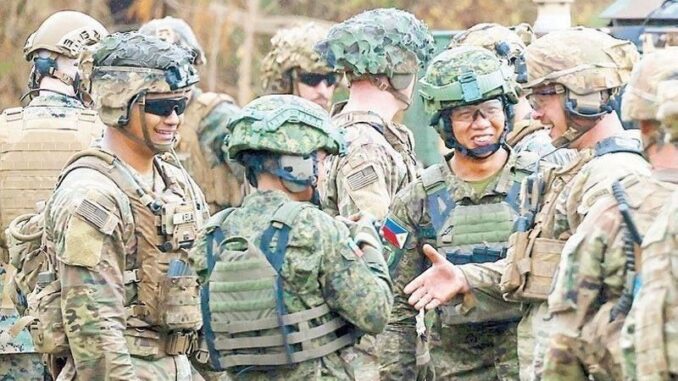
MANILA, Philippines — The Philippines and the United States have completed the bilateral Whole of Government (WOG) interagency counterterrorism exercise Tempest Wind 2024 in the country.
TW24, a crisis action mission rehearsal, addressed contingency operations applying current policies, authorities and approvals of both the Philippines and the US.
This integrated WOG of the Philippines approach provided the most realistic environment possible to exercise strategic counterterrorism policy involving senior decision-making challenges and tactical responses, while deepening the overall partnership of the US with the Philippine government.
Over 350 personnel participated in complex events designed to rehearse counterterrorism strategy to develop joint capabilities, strengthen alliance and deepen WOG bilateral relationship.
The exercise tested the ability of both nations to rapidly plan, coordinate and conduct counterterrorism operations.
The mission rehearsal also included a command post exercise that challenged Philippine and US forces’ ability to plan, command and communicate with each other in a simulated environment.
“The experience gained during TW24 complements our mutual training interests and the combined ability to respond to crises across a range of military operations. This gives us a more durable and strengthened advantage against malign actors and terror organizations,” said US Army Col. Sean Berg, US special operations forces commanding officer for TW24.
The training was tailored to help the region’s security forces work together in responding to terrorist incidences, while deepening the counterterrorism partnership between the US and the Philippines.
He added that events like Tempest Wind provide a solid foundation for continued regional peace and security and allow the US and allies to be ready to counter terrorism however it may present itself.
Tempest Wind is one of many exercises that are part of US Indo-Pacific Command’s military-to-military engagement program and are conducted with nations throughout the Indo-Pacific region, allowing US forces allies and partners to increase skills in diverse environments.





Be the first to comment